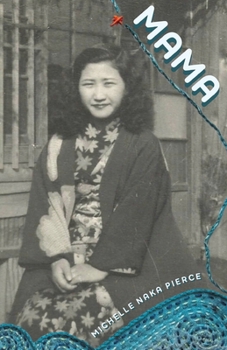Mama
In this poignant meditation, Michelle Naka Pierce writes: "Memorī is all one body." Part historical document, part mourning song, MAMA is a hybrid work that traces a nonagenarian mother's cognitive decline and her stories of surviving World War II on Tsukishima / Moon Island. With memorī playing on continuous loop, the text leans into the Zuihitsu tradition of "following the brush"-stitching together poem, song, letter, and grief as they arise.
Set against the devastation of the Tōkyōdaikūshū / Great Tokyo Air Raid, MAMA offers a rare perspective on a past often erased from dominant narratives. Spanning continents, the book reckons with intergenerational trauma, diaspora, and the silences of immigrant life, braiding English and Japanese with archival fragments and embodied experience. At its heart, MAMA is a vow: to bear witness before memory disappears. This act of writing is one of oyakōkō / filial devotion-honoring the enduring bond between mother and daughter.
A vital contribution to Japanese American literature and experimental poetry, MAMA asks how we carry ancestral stories when language falters and memory slips.
Related Subjects
Poetry




